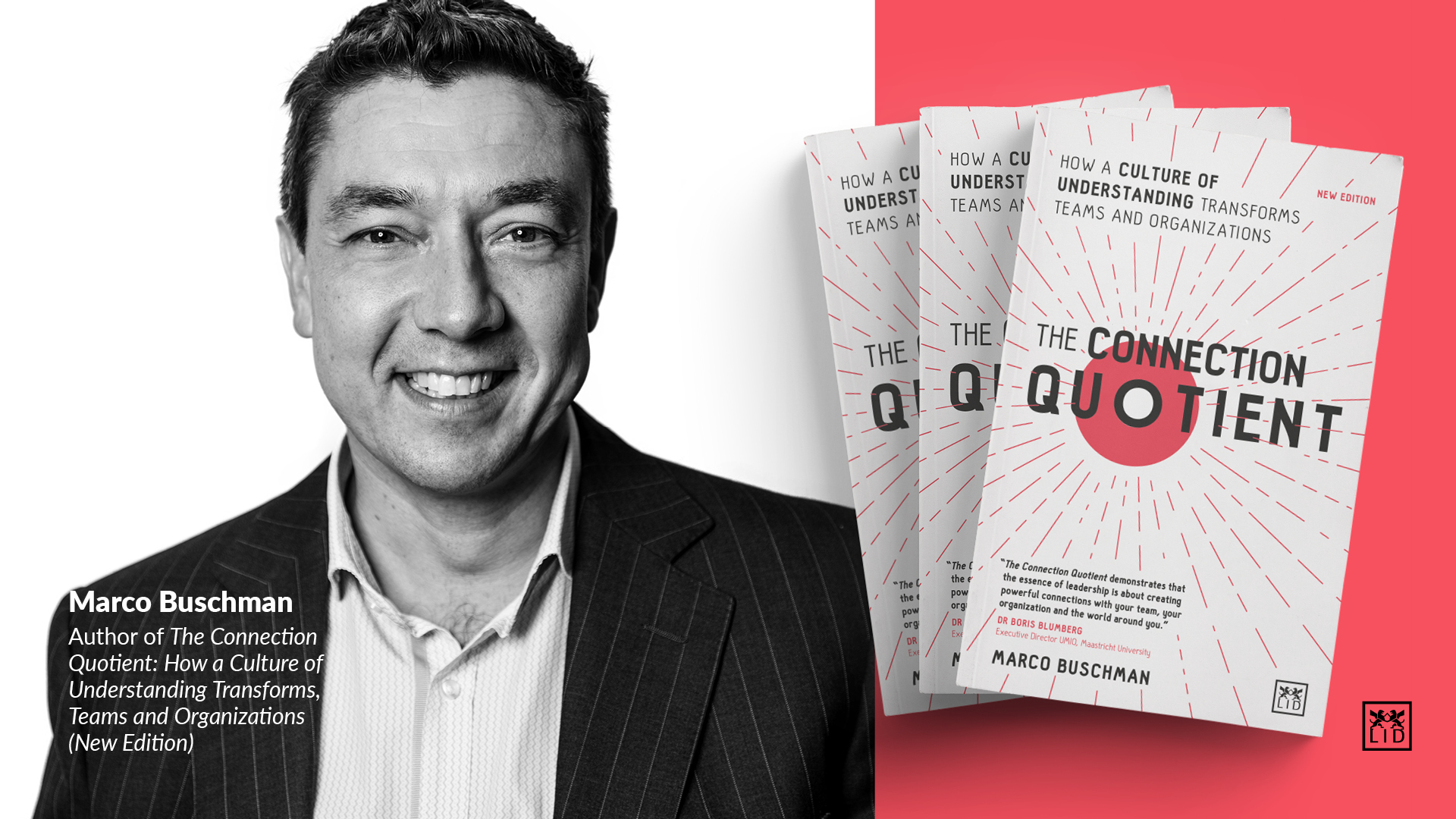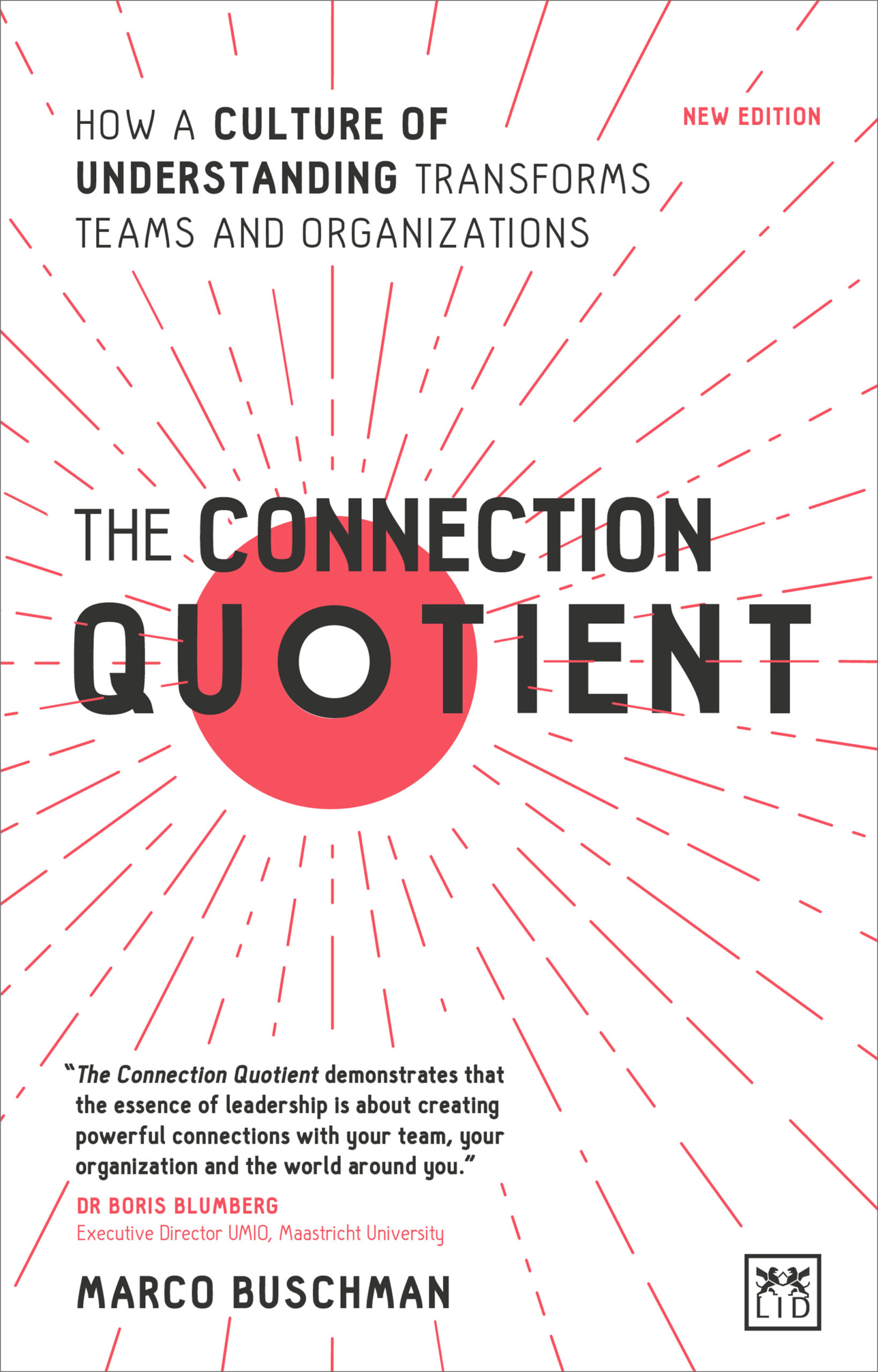|
What are the attributes of powerful leaders? with Marco Buschman
What are the attributes of powerful leaders?

By Guest Contributor Marco Buschman
Author of The Connection Quotient, Marco Buschman, reveals the most common attributes of powerful leaders and whether they tend to be rational or emotional.
If you ask people about the attributes of the best teams, consistently one-third of the answers will relate to rational attributes and two-thirds to emotional attributes. This ratio between intellect and emotion becomes even more skewed if you ask people about the attributes of powerful leaders.
In the study I conducted to find the answer to the question on the attributes of powerful leaders, I have referred to leaders in the broadest sense of the word. Besides leaders in a business or political context, you also have people you experience as a leader within your family, within your social environment, or within every other random connection that sounds logical to you.
When asked about the attributes of those powerful leaders, the ratio between rational and emotional attributes shifts compared to the best teams ratio. Only 10% (instead of one-third in best teams) of the named attributes are rational attributes and as many as 90% (instead of two-third in best teams) of the answers concern emotional attributes.
Most named attributes of powerful leaders
Some of the attributes I constantly hear about leaders who are considered to be powerful are:
- He radiates pleasure, enthusiasm and passion
- He shows respect and trust
- He treats me as an equal
- He believes in me
- He challenges me
- He creates a safe environment in which I feel supported
- He takes the time to really listen to me and my viewpoints
The impact on the other person is that he feels heard and seen, he is stimulated to put in maximum effort, and he willingly follows the leader in achieving his vision and goals. Clearly, these are all emotional attributes and an emotional impact, leading to rational outcomes.
The paradox between rational and emotional
The consistency in the answers leads me to observe that, within best teams and in powerful leadership, conscious or unconscious more attention is paid to the emotional side of engaging in connections and collaborations. Does this mean that in day-to-day situations more attention must be paid to the emotional aspects of collaborating instead of to the rational aspects?
In my opinion, we have a paradox here. The rational and emotional attributes in best teams and powerful leadership are to me equally important, and yet at the same time, they’re not when observing the answers on best teams and powerful leadership.
The importance and risk of rationality
In order to create business results you need to bring in rationality to define the company’s vision, your strategy, decide the business model and processes, come up with plans and make decisions, and so on. So rationality is important to create business results.
However, what happens when following defined procedures becomes more important, and much emphasis is placed on accountability. The result is the process becomes laborious and there’s less flexibility. The team works together in an increasingly mechanical way. The result is that the power of the connection and emotion is reduced to zero through over-organization. In an extreme situation, employees are reduced to simply a means of production to achieve results. As a leader, your impact will reduce and be more mechanically.
The importance and risk of emotions
Organizations are made up by people (at least for now, not sure if that will be true in the future). And in order to collaborate, next to the rational elements, you need to bring in emotions to create, amongst others, connections and willingness to collaborate. Think about celebrating success, work with diversity and active inclusion, have healthy discussions and conflicts, use humour to elevate the energy, and so on. So emotion is equally important to create business results.
However, if the leader focuses primarily on the emotions and takes this too far, it will also have an impact on the effectiveness of the team. For example, if he insists on continually talking to everyone about the management side, instead of defining boundaries and determining the path to follow, at some point this will negatively affect the results. No choices are made, and employees don’t know what’s expected of them (or they do what they think best).
The paradox in action
So, although rational and emotion are in essence equally important, the results on the question on best teams and powerful leaders show that the balance is unequal. Additionally, I’m convinced that it is the emotional factor that contains the natural source of inspiration for powerful collaboration and achieving results. Think, for example, of the love for the patient, the attention for the pupil, the passion for numbers, the dream of a better world, etc. These motivations belong to the domain of emotions and are an inexhaustible source of commitment.
If you can create the right circumstances to make use of this natural source in a sincere manner, results that were considered impossible before suddenly become realistic. For example, this can occur when teachers themselves start to connect more and are willing to make an extra effort in the classroom by making a connection between the source of inspiration of ‘the growth of children’ and the activities they carry out. They work less for the money, more for their ‘belief ’. The same applies to all employees. The more they believe in the product or the service, and thus feel the connection, the more they are willing to work for it.
A point to reflect on
What is your opinion about the paradox of the importance of rational and emotional attributes to create best teams and powerful leadership? And what do you think would happen in society if you and your family members, neighbours, people with different cultural backgrounds or religious beliefs all worked on the emotional connection with themselves, and then engaged in an emotional connection with others? Would there still be so many wars, conflicts and arguments?
ABOUT THE AUTHOR

Suggested Reading
 The Connection Quotient enables an honest, courageous and humane interconnection to form, while still focusing on financial outcomes and results, developing these relations to improve the business networks they serve. The CQ enables us to illuminate our human qualities and use these to connect with others, discuss differences, expand insight and encourage the development of new ideas. The CQ will introduce a new workplace culture where organizations and teams can approach the personal and professional through a more transparent and inclusive style. Ultimately, the CQ makes it possible to play “hard on the ball, and soft on the individual”.
The Connection Quotient enables an honest, courageous and humane interconnection to form, while still focusing on financial outcomes and results, developing these relations to improve the business networks they serve. The CQ enables us to illuminate our human qualities and use these to connect with others, discuss differences, expand insight and encourage the development of new ideas. The CQ will introduce a new workplace culture where organizations and teams can approach the personal and professional through a more transparent and inclusive style. Ultimately, the CQ makes it possible to play “hard on the ball, and soft on the individual”.
